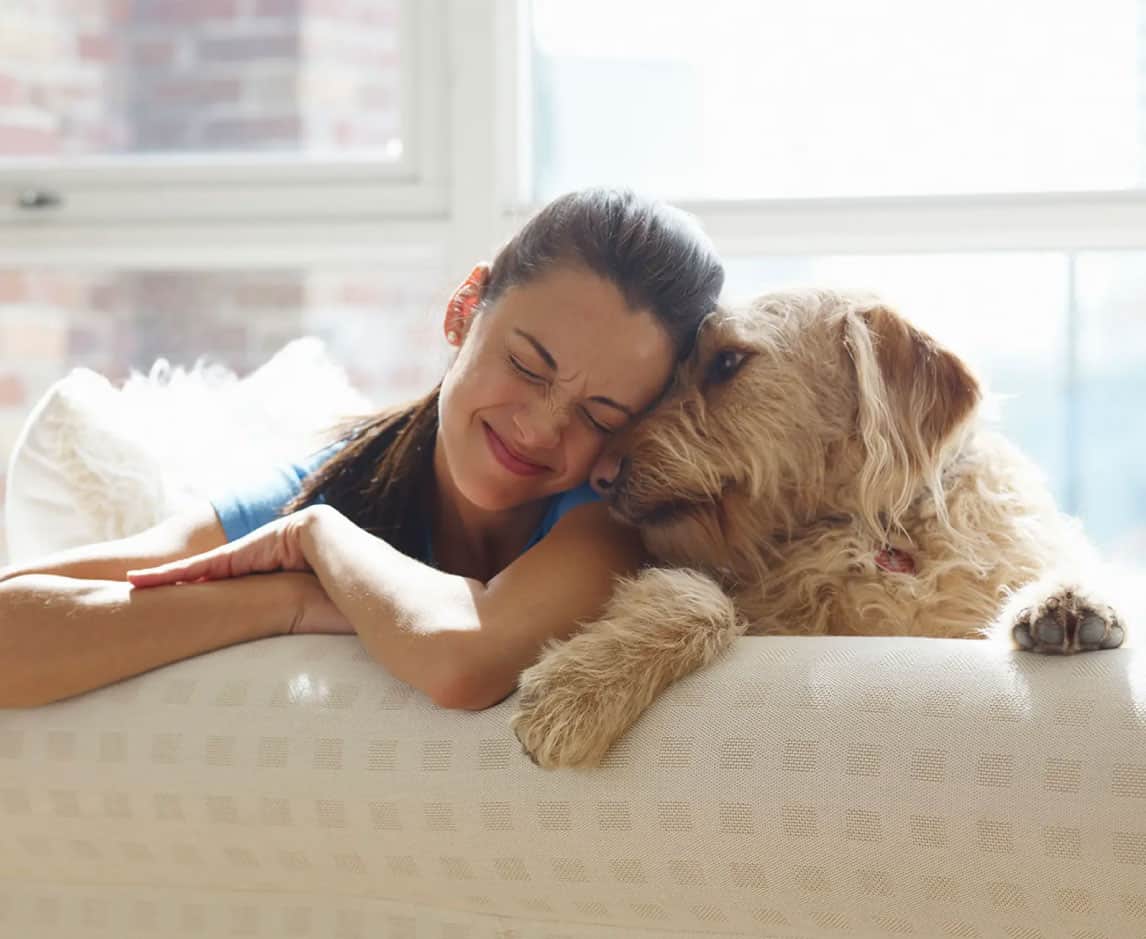Our last post took a look at how pets can help their humans to deal with mental health issues, or simply provide comfort through stressful periods. In light of May being Mental Health Awareness month, I thought I’d shift gears and look at how we can identify stress in pets and in our next post, ways to alleviate our four legged companions worries! After all, pets are also experiencing these unusual times, and like us, stress can be the result.
Identifying Stress in Pets
Although I’m pretty sure my dog Clooney speaks to me in his own language, for us animal companions it’s not always easy to tell if our pets are experiencing stress. However, a few symptoms can be indicative that your pet is experiencing anxiety or stress.
GI Issues
A sign of possible stress in pets is a Gastrointestinal Issue. While generally presenting as diarrhea, a pet experiencing constipation could also be having emotional struggles.
Change in Appetite
Just as the GI Issues that point to stress in your pet, the change in appetite can vary. Typically the change will present as a loss of or reduction in appetite. However, like humans and the phenomenon known as stress eating, an increased appetite can be a sign of underlying discomfort.
Unusual Isolation
While cats are generally thought of as fiercely independent while dogs, traditional pack animals, in need of constant companionship, pet parents will certainly observe patterns of behavior. Any noticeable change in the norm, but particularly more time spent alone is often a sign of psychological distress.
Increased sleep
Like humans, changes in sleep usually point to anxiousness in pets. It’s not that seeing pets sleeping is unusual: After all, on average dogs log 12-14 hours of ZZZZ’s a day while felines get anywhere from 12-16! What can be an indicator of a stressed pet is to see your four legged family sleeping at unusual times. For instance; if a pet typically is full of excitement upon your returns home, but seems lethargic, their deep restorative sleep may be interrupted. Often the cause of interrupted sleep or pets not reaching deep sleep is stress.
Atypical Aggression
Having a dog or cat show aggression is not in itself a sign of stress. However, having a pet that’s normally mellow and calm around people or other pets show aggression in such circumstances be the release of nervous energy. While this can be an instance of a pet getting spooked, it’s important to take note of a new behavior pattern.
While this is in no way a complete list of how stress can present itself in pets, these are many of its’ most common manifestations. Thank you for loving your pet and your interest in RAWZ!





